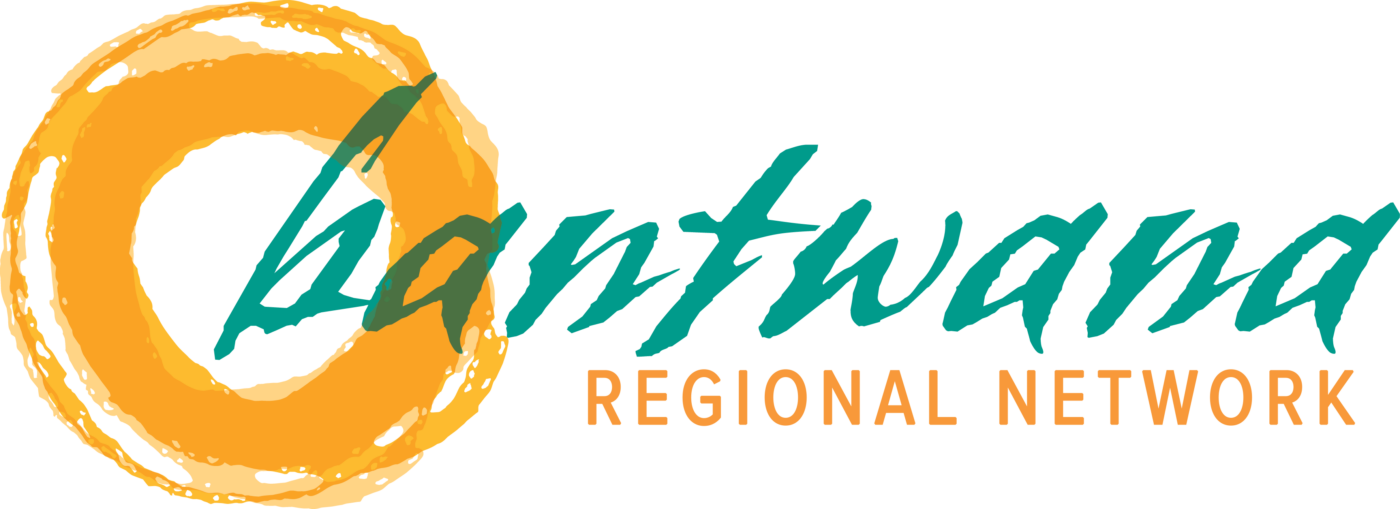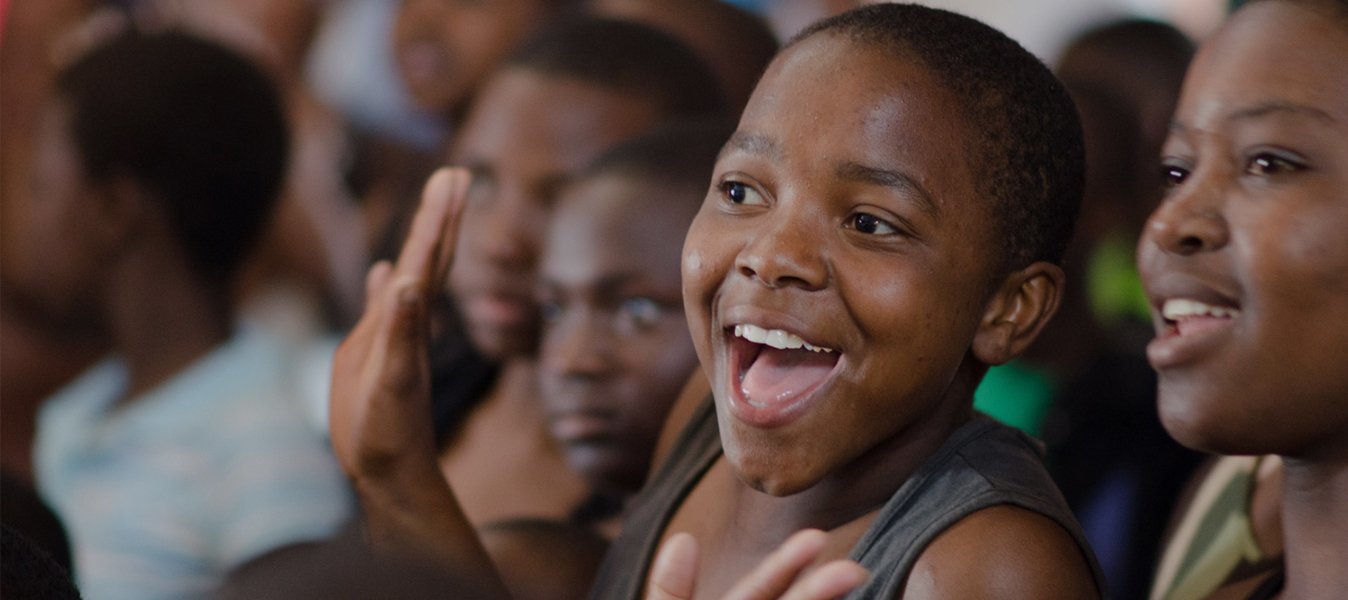
Employing Multisectoral Approaches in the Fight Against Gender-based Violence
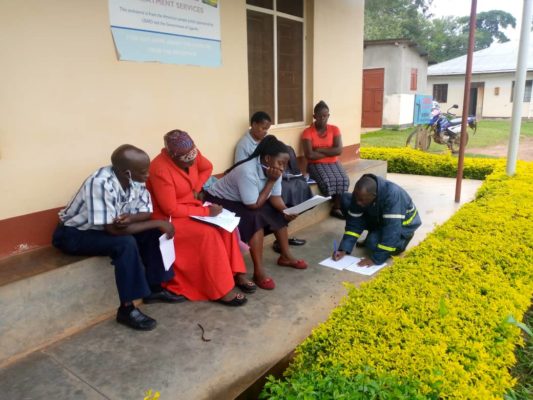
Along with more than 3,300 trained peers across nearly one-third of Uganda’s 111 districts, Henry Kyobe is a community-based parasocial worker who is actively involved in eliminating gender-based violence (GBV). In his case, it’s a very personal issue:
“I grew up watching my parents fight, and we often slept outside because of that. [Then] my mother decided to leave — forcing me to live with a stepmother who mistreated me,” recalls Henry. “That experience tortured me, and I am concerned when I see children and women being abused, because I have been through it.”
Today, in his work with the USAID Integrated Child and Youth Development (ICYD) Activity — led by the Education Development Center and supported by the Bantwana Initiative — Henry works with families and communities in central Uganda to prevent and respond to gender-based violence violence (GBV). In collaboration with social workers and community development officers, para social workers identify, assess, and refer survivors of GBV to medical and legal services, among others. They also provide psychosocial support to help survivors cope with stigma and trauma.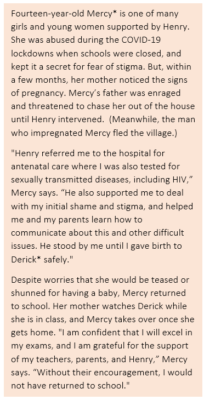
The effects of GBV are devastating and threaten physical and mental health, leading to depression, isolation, and even self-harm and suicidal ideation. According to the 2020 Uganda Crime Report, 995 girls aged 15-17 were sexually abused during the COVID-19 lockdown (120 of them by a family member), and over 300 females were raped by HIV-positive persons. Mercy* was one of those (see box).
The global 16 Days of Activism Against Gender-Based Violence campaign (Nov. 25 – Dec. 10) underscores the importance of challenging gender norms that tolerate such violence and of highlighting community champions, including men such as Henry, who are advocating for change.
The ICYD Activity employs multi-institutional and cross-disciplinary interventions to prevent and respond to violence against children and adolescents, especially girls. Our approach builds the agency of girls and boys to protect themselves, strengthens protective supports in families and communities, and bolsters a coordinated response across health, education, and protection systems through community-based case management. Child-centred psychosocial support delivered by para social workers and social workers, helps children and families avoid additional harm and trauma, and promotes healing and resilience.
Among the many ICYD interventions for children and caregivers that Bantwana supports, we are rolling out:
- “No Means No,” a curriculum that helps break the cycle of violence by teaching boys to respect and support women and girls while empowering girls to advocate for their rights;
- Journeys Plus, a life skills curriculum that incorporates HIV prevention and gender-based violence prevention and programming;
- and Sinovuyo, a 14-week positive parenting program for families with adolescent children.
Together, these programs equip caregivers, girls, and boys with the knowledge and skills needed to prevent and respond to violence. “I learnt to defend myself against abuse and to stop being shy,” says Skyla, a No Means No participant. “When Boda Boda [motorcycle taxi] men and roadside vendors call out to me, I don’t look back; I stay focused on where I’m going, and now they don’t bother me anymore.”
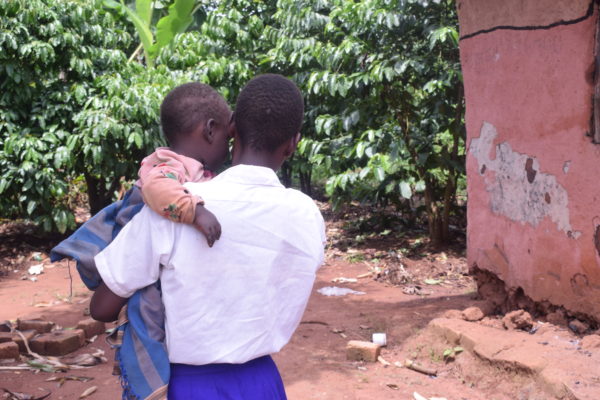
Going beyond individual skills, ICYD training and mentorship strengthens the capacity of community structures to effectively raise awareness, report and refer GBV cases, and coordinate, document, and deliver social and psychosocial support to victims of GBV within their communities. “Managing GBV requires close collaboration with community structures such as parasocial workers. They sleep, eat, and socialize with the community, and they are a credible source of information,” says Joan Luswata, a local government official in Nakaseke.
At the national level, ICYD has helped to popularise SAUTI 116 (the toll-free Uganda Child Helpline), while establishing District Action Centres and training Helpline teams to improve case documentation, follow-up, and response. ICYD also provides a monthly case management fund to the probation officer to follow up on critical sexual and gender-based violence cases and conduct home visits to provide post-care and legal support services.
*Pseudonyms used to protect confidentiality.
